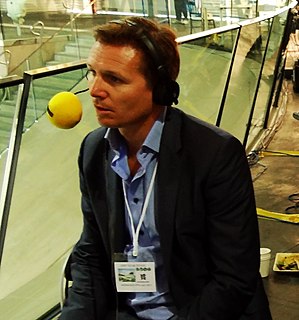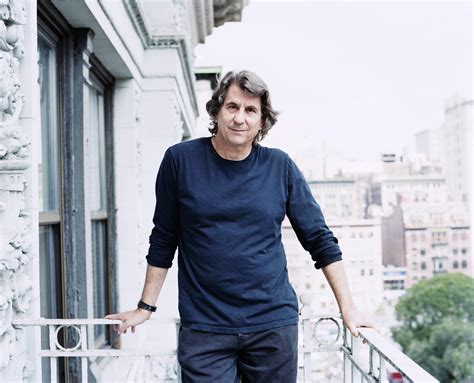A Quote by Michael Behe
The conclusion of design flows naturally from the data; we should not shrink from it; we should embrace it and build on it.
Related Quotes
The conclusion of intelligent design flows naturally from the data itself - not from sacred books or sectarian beliefs. Inferring that biochemical systems were designed by an intelligent agent is a humdrum process that requires no new principles of logic or science. It comes simply from the hard work that biochemistry has done over the past forty years, combined with consideration of the way in which we reach conclusions of design every day.
We should not shrink from opportunities where our faith may be tried. The more I am in a position to be tried in faith, the more I will have the opportunity of seeing God’s help and deliverance. Every fresh instance in which He helps and delivers me will increase my faith. The believer should not shrink from situations, positions, or circumstances in which his faith may be tried, but he should cheerfully embrace them as opportunities to see the hand of God stretched out in help and deliverance. Thus his faith will be strengthened.
Now if you ask me, in conclusion, "Well, what, then should properly be done?" Obviously war, but I mean in regard to this issue I would say: Any way possible permission should be refused and if they go ahead and build it, the government should bomb it out of existence, evacuating it first, with no compensation to any of the property owners involved in this monstrosity.
The object of a comedy is not to correct morals or ridicule the vices of society; no, a comedy should depict the discrepancies between life and purpose, should be the fruit of bitter indignation aroused by the degradation of human dignity, should be sarcasm, and not an epigram, convulsive laughter and not an amused grin, should be written with bile and not diluted salt, in a word, it should embrace life in its highest significance.
I agree with a lot of the points in Taleb's book, but I don't agree with many of his conclusions. It seems to me that he rightly points out that risk managers miss a lot of the risks, but the conclusion is that he draws, is that we should abandon risk management, whereas my conclusion is we should improve it.




































